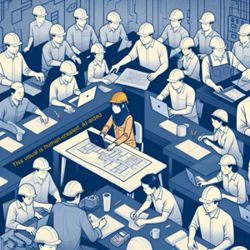WHILE Aug 31 is often seen as Independence Day, otherwise known as "Merdeka," Sept 16 marked the formation of the Federation of Malaysia with the inclusion of Sabah, Sarawak, and Singapore in 1963.
Although Singapore would consent peacefully to leave the Federation of Malaysia 22 months later, in August 1965, it is essential to note Singapore's emphasis on regionalism.
This approach aimed to create a stable region larger than the sum of its parts. Thus, on Aug 8, 1967, the Association of Southeast Asian Nations (Asean) was born.
The original founders of Asean included Indonesia, Malaysia, Singapore, Thailand, and the Philippines. The founding document placed significant emphasis on social, cultural, and economic cooperation as key drivers of Asean integration.
Although it is easy to take Asean for granted, it is from this entity that more than 1,500 meetings are established at Track 1 and Track 2 diplomacy across the Asia-Pacific, according to the National Institute of Research Agency (Nira) in Tokyo. While many call Asean irrelevant in the age of "Great Power Rivalry," it has spawned entities like the East Asian Summit (EAS), the Asia-Pacific Economic Cooperation (APEC), the Comprehensive Progressive Transpacific Partnership (CPTPP), Regional Cooperation on Economic Partnership (RCEP), and has even embraced the Belt and Road Initiative (BRI) and the Indo-Pacific Economic Cooperation (IPEC).
While Malaysia cannot claim credit for all of the above, including the Asean Regional Forum (ARF) and Asean Defense Ministers Meeting Plus (ADM Plus), it is equally important not to exclude Malaysia or the original founders of Asean and Brunei.
Cambodia joined Asean in 1999, while Myanmar, Laos, and Vietnam joined in 1997. By using 1998 as a benchmark, one could argue that Prime Minister Anwar Ibrahim knew or was indirectly involved in all these developments, given his role during that period.
Digging deeper, Anwar could not have known about other historical milestones like the Organization of Islamic Cooperation (OIC) in 1969 or the Gulf Cooperation Council (GCC) in 1972. Additionally, a perceptive leader like Anwar would have acknowledged the importance of the European Coal and Steel Community in 1950, which laid the foundation for today's European Union (EU).
The EU transitioned from the European Community (EC) to the EU in 2000, adopting the Euro as well. Including the OIC, the United Nations (UN) established in 1945 is part of the 24 regional organisations (RO) globally. Each year, all 24 Secretary Generals of these ROs, excluding BRICS, meet with the UN Secretary General.
Anwar was even asked by former leaders like ex-President Abdullah Gul, former Vice President Al Gore, and ex-Secretary of State Madeleine Albright to stand as a candidate for UN Secretary General. Their advice to Anwar was to avoid Malaysian politics to evade politically motivated imprisonment. However, Anwar chose to return to Malaysia and, after facing persecution, led Pakatan Harapan to victory in 2018, aided by Mahathir Mohamad.
However, the self-coup known as the Sheraton Move on Feb 23, 2020, led to the rejection of Mahathir and his supporters in the 15th General Election on Nov 19, 2022. Mahathir's party, Pejuang, lost all state and parliamentary seats, with none of their 500+ candidates securing even 0.2% of any contested seats.
This narrative raises a crucial question: while Anwar may not have all the answers to modern woes, he certainly did not cause them. Hence, his belief in what he calls "the post-normal time," compelling enough to write about on top of his "Asian Renaissance," completed 30 years ago.
Although Anwar could have rested on his laurels to lead Malaysia as the Chairman of Asean and the East Asian Summit in 2025, he chose to pitch Malaysia's aspiration to join BRICS, comprising Brazil, Russia, India, China, and South Africa. The membership has expanded significantly, representing more than half of the world's population and aligning with Malaysia's neutral and non-aligned foreign policy.
BRICS Plus, as it is now known, is backed by a New Development Bank with a USD 50bil capital endowment. Even Saudi Arabia, with its Vision 2030, seeks inclusion. Malaysia should collaborate with Saudi Arabia in BRICS Plus, as it does with other GCC member states like UAE, Bahrain, Oman, Kuwait, and Qatar.
In Chinese, BRICS or BRICS Plus is "Jin Chuan," meaning "Gold Brick," although this does not signal a return to the Gold Standard abandoned in 1929 and 1973. Nor does BRICS Plus suggest de-dollarisation, as the USD and Euro remain the preferred currencies for global exchange, accounting for almost 85%. Moreover, Japan's intellectuals and policymakers promoted the Yen as a currency of exchange in Asia after the Asian Financial Crisis (AFC).
A rules-based order is compromised when concurrent wars erupt in Eastern Europe and the Middle East, with the United States and the G7 struggling to contain the resulting global repercussions, like spikes in food, fertilizers, animal feed, and fuel prices.
Assessing Anwar's competence as his second anniversary as Prime Minister approaches on Nov 24, Malaysians should ask: Is the Ringgit Malaysia appreciating? Is the economy improving? Are new investments flowing in? The answers are affirmative.
For the first time since 2010, when Malaysia got embroiled in the 1MDB scandal, Malaysia has regained its footing. Its currency is the strongest performer in Asia, the economy is poised to grow nearly 6% by the end of 2023 according to the World Bank and IMF, and the country's reserves in Bank Negara stand at USD 110bil, one of the highest ever. Malaysia's debt-to-GDP ratio is 44%, compared to 65% in Indonesia and significantly lower than Japan's 400%.
Anwar's belief in "magical realism," inspired by Latin literary giants Ortega y Gasset and Gabriel Marquez, suggests that fiction is just reality that hasn't happened yet. Mahathir did Malaysia a favour by recruiting Anwar into politics in 1981, inadvertently helping the Third World by spurring Anwar into action.
Even Mahathir's vision of an International Islamic University of Malaysia (IIUM), now lacking a formal rector, is an entity Anwar aims to revive. Can it be revived according to the OIC's original aspirations from their meeting in Rabat, Morocco, in 1986? Given Malaysia's economic rebound over the last six months, it is possible.
Asean, initially seen as unlikely to succeed in 1967, has proved itself by preventing prolonged wars between member states and establishing comprehensive strategic partnerships with Australia, China, India, and the US. This architecture has affirmed the US's forward deployment in the Asia-Pacific as a "latticework of arrangements," preventing any dominant power in the region.
If the US gets embroiled in a third conflict in the Asia-Pacific or Indo-Pacific, it risks absolute decline, as no superpower can fight three wars on three fronts.
By rallying the Global South in speeches in India and Russia, Anwar sought to warn the West and others, as President Recep Tayyip Erdogan puts it, that the world is "beyond five."
Malaysia's foreign policy is pro-trade and omni-directional, making it a friend to all and an enemy to none. As the late Singaporean Mentor Minister Lee Kuan Yew noted in 1965, "if there is trade in North Korea, we will trade with them. There is no ideology to stop anyone from trading." Malaysia firmly supports free trade but opposes wars in Gaza and Ukraine, embodying its position as a confluence of many civilizations in Southeast Asia.
Phar Kim Beng is CEO of consultancy firm Strategic Pan Indo Pacific Arena.










































